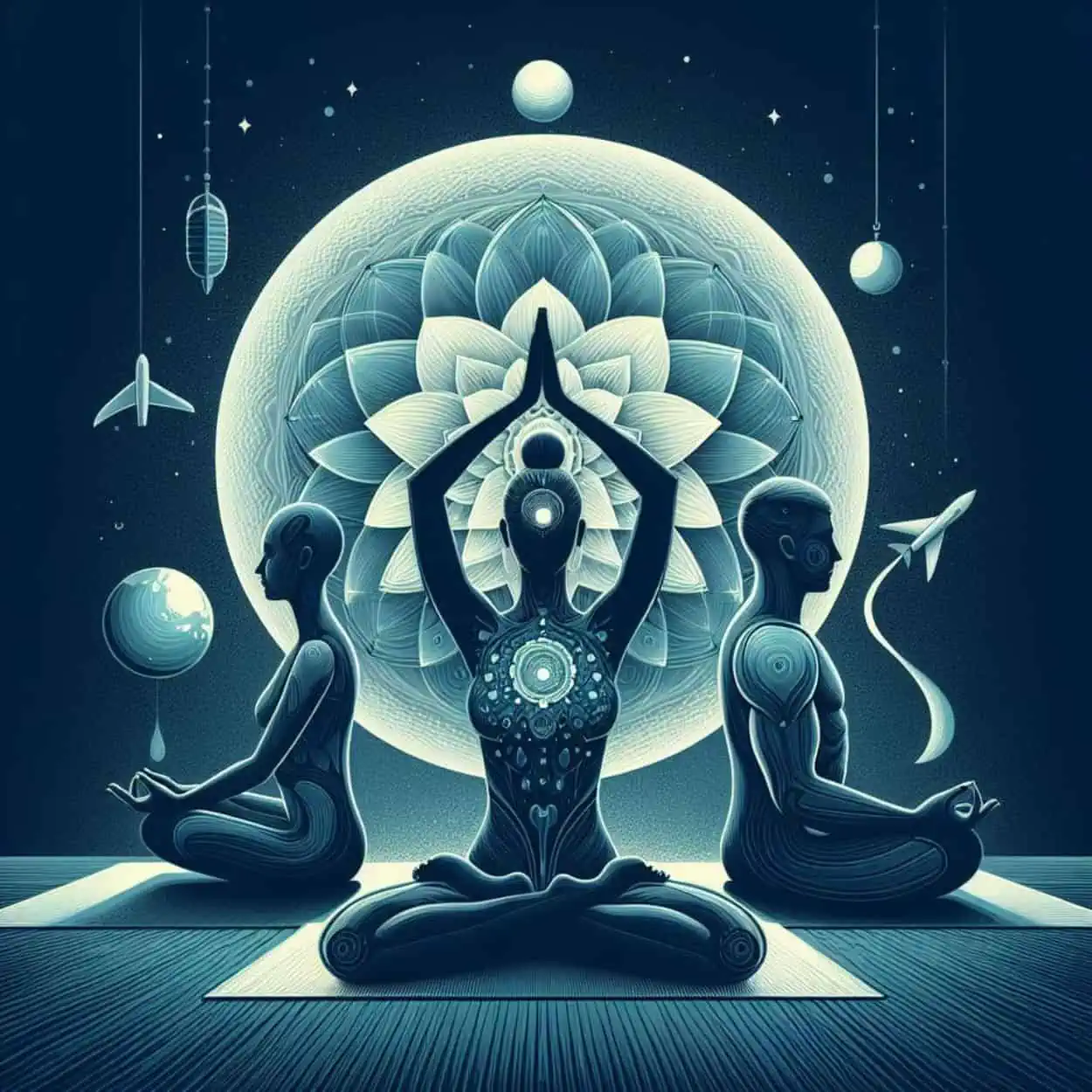Introduction
In the bustling world we inhabit today, filled with incessant stimuli and constant demands, finding moments of peace and balance can seem like a distant dream. Amidst this chaos, practices like Yin Yoga offer a sanctuary—a path to rediscover equilibrium and harmony within ourselves. In this article, we’ll delve into the essence of Yin Yoga, exploring its principles, benefits, and how it fosters balance and harmony in our lives.
Understanding Yin Yoga
Yin Yoga is a gentle yet profound practice that originated from the ancient traditions of yoga and Taoism. Unlike its dynamic counterpart, Yang Yoga, which focuses on muscular engagement and movement, Yin Yoga targets the deeper connective tissues, such as ligaments, tendons, and fascia. It involves holding passive poses for an extended duration, typically ranging from two to five minutes or more, allowing the body to soften and release tension gradually.
The Philosophy of Yin
At the core of Yin Yoga lies the principle of yielding, acceptance, and surrender. Drawing inspiration from the Yin-Yang philosophy, Yin Yoga emphasizes the balance between opposing forces—yin representing the passive, receptive aspect, and yang symbolizing the active, dynamic energy. By embracing stillness and introspection, practitioners delve into the yin aspects of their being, fostering self-awareness and inner tranquility.
Benefits of Yin Yoga
(1) Enhanced Flexibility: Holding poses for an extended period gently stretches the connective tissues, promoting greater flexibility and joint mobility.
(2) Deep Relaxation: The meditative nature of Yin Yoga induces a state of profound relaxation, alleviating stress and promoting mental clarity.
(3) Improved Energy Flow: By stimulating the body’s meridian lines, Yin Yoga facilitates the smooth flow of energy (Qi) throughout the body, enhancing vitality and well-being.
(4) Release of Tension: Holding poses targets areas of tension and tightness, promoting muscular relaxation and alleviating chronic pain.
(5) Mind-Body Connection: Through mindful awareness and breathwork, Yin Yoga cultivates a deeper connection between the mind and body, fostering emotional balance and resilience.
Practical Tips for Practicing Yin Yoga
(1) Start Slow: Begin with simple poses and gradually increase the duration and intensity as your body adapts.
(2) Listen to Your Body: Honor your body’s limitations and avoid pushing yourself beyond your comfort zone. The essence of Yin Yoga lies in gentleness and receptivity.
(3) Focus on Breath: Use the breath as a guide, allowing it to deepen the stretch and calm the mind. Cultivate a slow, steady breath throughout the practice.
(4) Embrace Stillness: Embrace moments of stillness and silence, allowing thoughts to arise and dissolve without attachment.
(5) Incorporate Props: Props such as blankets, bolsters, and blocks can provide support and enhance the depth of relaxation in poses.
Yin Yoga and Balance
In a world dominated by the relentless pursuit of productivity and achievement, finding balance is essential for our well-being. Yin Yoga offers a sanctuary—a space to pause, reflect, and reconnect with our inner selves. By embracing the yin qualities of stillness, introspection, and acceptance, we counterbalance the frenetic pace of modern life, fostering a sense of harmony and equilibrium within.
Harmony Through Yin
As we journey deeper into the practice of Yin Yoga, we discover that true harmony arises not from external circumstances but from within. Through the gentle art of surrender, we release the grip of attachment and resistance, allowing life to unfold with grace and ease. In this state of inner harmony, we navigate the ebbs and flows of existence with resilience and grace, anchored in the unwavering presence of our being.
Conclusion
In a world fraught with chaos and uncertainty, Yin Yoga offers a timeless refuge—a sanctuary where we can reconnect with the essence of our being and rediscover the innate balance and harmony that reside within us. As we surrender to the gentle embrace of stillness and introspection, we awaken to the profound wisdom that lies at the heart of our being, illuminating the path to wholeness and well-being. So, let us embark on this journey into the depths of our being, guided by the gentle wisdom of Yin Yoga, and emerge anew—balanced, harmonious, and at peace.
Also Read: Yin Yoga for Arthritis
Frequently Asked Questions and Their Answers
Does yin yoga help with balance?
Yes, Yin Yoga can indeed aid in fostering balance, both physically and emotionally. Unlike dynamic forms of yoga, Yin Yoga targets the deeper connective tissues, promoting flexibility and joint mobility while simultaneously encouraging stillness and introspection. By holding passive poses for extended periods, practitioners develop a heightened awareness of their body and breath, fostering a deeper mind-body connection. This enhanced awareness, coupled with the practice of surrendering to the present moment, cultivates a sense of equilibrium within oneself. Moreover, the meditative nature of Yin Yoga promotes relaxation and stress relief, helping individuals find balance amidst the chaos of modern life. Thus, Yin Yoga serves as a powerful tool for restoring harmony and balance to the body, mind, and spirit.
What happens if you do yin yoga everyday?
Practicing Yin Yoga daily can have transformative effects on both the body and mind. Consistent practice fosters increased flexibility, as the passive stretching targets deep connective tissues, enhancing joint mobility and range of motion. Moreover, daily Yin Yoga cultivates a profound sense of relaxation and inner peace, alleviating stress and promoting mental clarity. Over time, practitioners may experience improved energy flow throughout the body, leading to enhanced vitality and well-being. Additionally, regular Yin Yoga practice strengthens the mind-body connection, fostering emotional resilience and a greater sense of self-awareness. However, it’s essential to listen to your body and modify the practice as needed, as daily practice may not be suitable for everyone depending on individual circumstances and physical condition.
Also Read:
➤ Yin Yoga for Improved Sleep Quality
➤ Yin Yoga for Mind-Body Connection: Nourishing the Soul through Stillness
➤ Yin Yoga for Spinal Health
➤ Yin Yoga for Self Care
➤ Yin Yoga for Emotional Release: Nurturing Your Mind and Body
